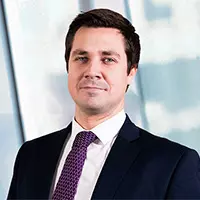The background of this dispute relates to renovation works of a residential property which included the creation of a new basement. Whilst carrying out these works, damage was suffered to surrounding properties and the parties were permitted to call expert evidence in respect of structural engineering and quantum. The claimants engaged Mr Hardy as their expert and the sixth defendant, AXA XL Insurance Company ("AXA"), engaged Mr Tucker.
However, when the draft joint statement was in its final stages concerns were raised by Mr Tucker of potential involvement from the claimant's solicitor arising from significant changes to Mr Hardy's views. Thereafter, the claimant's solicitors admitted to interference in the expert process and sought to replace their expert with Mr Tant. AXA argued that any appointment of a replacement expert should be conditional on the disclosure of the comments and instructions given to Mr Hardy.
The Court referred to the applicable rules and guidance as set out in paragraph 13.6.3 of the TCC Guide. While legal advisors may assist in identifying issues to be addressed in the joint statement, they must not be involved in negotiating or drafting the expert's joint statement. On analysis of the correspondence, the Court found that the solicitors believed it was permissible to amend the draft statement where it was thought the content did not reflect the pleaded issues. The Court concluded that "such a belief, however misguided, is not the same as a deliberate and knowing disregard of the applicable principles."
In reaching its decision, the Court considered the overriding objective of dealing with cases justly and at a proportionate cost. Similarly, the Court reiterated the importance of preserving the trial date, even where substantial and impermissible interference of expert statement process had occurred.
Ultimately, it was held that the claimant's request for a change of expert was not a case of "expert shopping" and the claimants could rely on Mr Tant as their new expert witness. Further, the Court refused AXA's request for the disclosure of communications between Mr Hardy and the instructing solicitors on the grounds that full information was already made available and a change of expert would allow a fair and swift resolution of any concerns of non-compliance and the independence of expert evidence.
Comments
The case of Glover serves as a stark reminder for legal advisors to adhere to the authority and guidance of the TCC and that they may only intervene with the preparation of joint statements in exceptional circumstances, that being where there are serious concerns that it may mislead or be misunderstood by the Court. Notably, this case illustrates the significant consequences on the claimant for costs where their legal advisors fail to adhere to these guidelines, even if the actions are believed to be permissible.
The full judgment can be accessed here.














